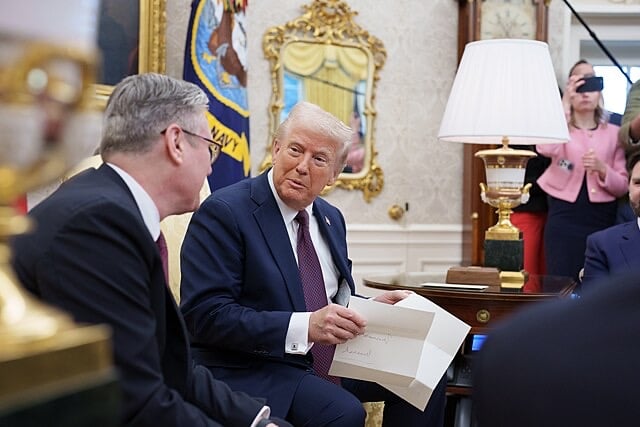In a development that has sparked intense political and human rights debate across the globe, US President Donald Trump has sent a team from his free speech task force to the United Kingdom following the controversial arrests of British citizens who were silently praying outside abortion clinics. The arrests, seen by many as a violation of basic civil liberties, have thrown a spotlight on the UK’s recent legislation concerning “buffer zones” around abortion facilities.
These buffer zones were introduced to ensure patients can access clinics without interference or perceived intimidation. But critics argue the laws go too far, effectively criminalizing peaceful expression—even when that expression is as passive as silent prayer. The UK has long positioned itself as a bastion of democratic freedoms, yet these arrests challenge that image and raise serious questions about the country’s direction on free speech.
The issue quickly caught the attention of conservative leaders and religious liberty advocates worldwide. With mounting international pressure, it was only a matter of time before a major political figure weighed in. Enter Donald Trump.
Donald Trump, known for his vocal defense of religious freedoms and free speech, responded swiftly. Within days of hearing about the arrests, he ordered members of his newly formed Free Speech Task Force to fly to London. According to a senior official close to Trump, the former president was “deeply disturbed” by the reports and wanted to send a strong message that such actions were unacceptable in any free society.
The delegation’s mission? To meet with the arrested activists, assess the legal environment in the UK, and initiate a diplomatic conversation about protecting peaceful expression across Western democracies. This move isn’t just symbolic—it’s strategic. With eyes already on the 2024 US election, Trump’s intervention reinforces his alignment with conservative voters and religious groups on both sides of the Atlantic.
The Arrests Sparking International Attention
What Happened Outside UK Abortion Clinics
The events that led to these international headlines took place outside various abortion facilities in the UK. Activists, many of whom are part of Christian or pro-life groups, were found silently praying near clinics. Some held signs, others merely stood with their heads bowed. Importantly, none of the individuals were accused of verbal harassment or physical obstruction.
However, under newly enacted Public Space Protection Orders (PSPOs), even this silent presence was deemed a violation of the law. These orders enforce “buffer zones” around clinics—typically around 150 meters—where any form of protest, prayer, or demonstration related to abortion is prohibited.
In one of the most widely reported incidents, Isabel Vaughan-Spruce, a well-known pro-life advocate, was arrested for simply standing silently outside a Birmingham abortion clinic. She wasn’t holding a sign. She didn’t speak to anyone. She was just praying quietly. Yet this act was enough to see her detained, questioned, and eventually charged.
The arrests fall under local council ordinances that enforce buffer zones, specifically through PSPOs. These zones were designed to shield women seeking abortions from what authorities describe as “emotional or psychological harassment.” However, legal experts and civil liberties advocates argue that the vague language of these laws leaves them wide open to abuse.
While the intention might be to create a safe space for clinic patients, the enforcement seems to be stretching into a grey area where even silent, individual prayer is treated as criminal. Critics say this sets a dangerous precedent where peaceful, personal expression is subject to government approval—an authoritarian slope that many believe democracies should avoid.
The debate has divided opinion across the UK. Supporters of the buffer zones say they’re essential for protecting vulnerable women during a deeply personal and often distressing time. Opponents argue that the zones are a smokescreen for suppressing religious and ideological dissent in public spaces.



